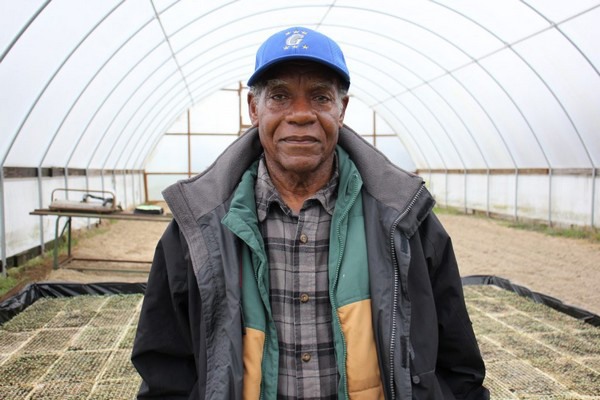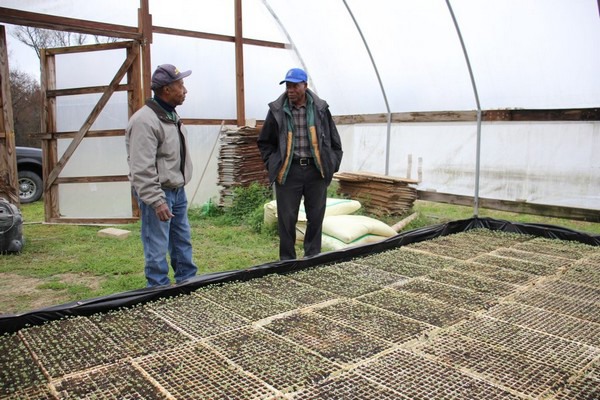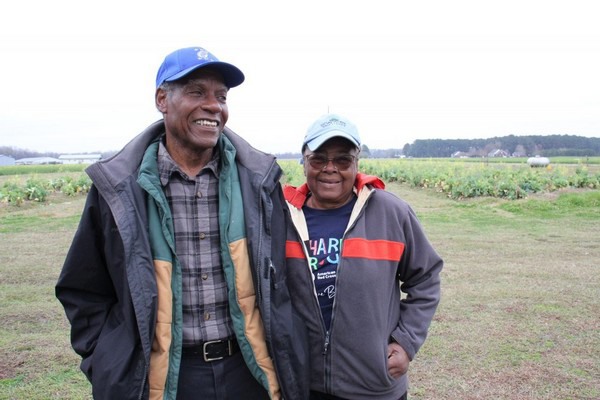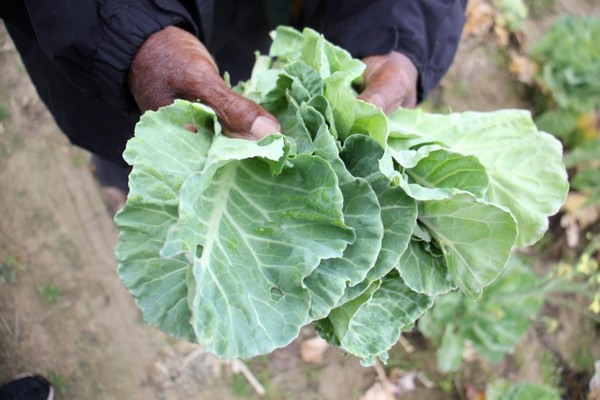Small Snow Hill farmer has built his business through direct local sales of collards, heirloom variety sweet potatoes and greens
At 79 years old with a lifetime of farming experience to his name, James Shackleford of Snow Hill well understands the challenges of being a small farmer and making a living from the land. This year, he’s watching his input costs even more closely as he makes plans to put another crop in the ground.
“It’s a challenge now farming. Every year it gets more challenging. With fuel, fertilizer (costs going up), I don’t know how long it will be worth it for me this year,” Shackleford said. “Fertilizer is up $5 a bag from what I bought in the fall. You are going to have to increase your costs to cover your costs.”

James Shackleford
For a time, Shackleford grew tobacco on his 50-acre farm like his daddy before him, but as tobacco farms grew in size, he decided to transition into vegetables, corn and soybeans. Today, he primarily focuses on vegetables and he has found a pretty loyal customer base that likes what he is growing, including collards, old varieties of sweet potatoes, old-fashioned “henpecked” mustard greens and watermelons.
“I’m known for my collards and the way we handle our stuff – it’s clean,” he said, adding that “word of mouth” helps move his products. People stop by the farm for fresh picked collards, greens, squash, okra, watermelons or whatever is in season. He sells some to a couple of local restaurants, but direct-to-consumer sales are his bread and butter. “As a small farmer, I can’t make it selling wholesale,” Shackleford said. “I do some wholesale, but not a lot – it’s not good for a small farmer.”
Shackleford has worked with members of the N.C. Department of Agriculture and Consumer Services’ Small Farm Division to access cost-share programs that have helped add on-farm irrigation and a high tunnel that allows him to get seedlings into the field a few weeks earlier than normal.

At left, Jacob Crandall, a small farms specialist with the N.C. Department of Agricultural and Consumer Services Small Farms Division, talks with farmer James Shackleford, at right.
Those additions can help improve the bottom line for small farmers like Shackleford, said Jacob Crandall, a program specialist with the Small Farms Division and a retired specialist with USDA. That’s part of the mission of Crandall’s division, helping small farmers survive and maximize their efforts.
Shackleford admits his wife Geraldine is probably ready for them to retire, but he still loves farming and watching the plants grow from seed. As Shackleford describes the farming process, he blends philosophy and faith, ending up with a powerful observation about life.
“I work with nature and what God has provided. You plant stuff and see stuff grow and you learn things along with way. If you don’t plant and work, you won’t get anything. If I don’t take action to put something in the ground, I won’t have anything. If you don’t tend to it, then you won’t have anything either,” he said, explaining that you have to work at growth and progress.

James and Geraldine Shackleford farm in Snow Hill.
For 20 years Shackleford has served as a Greene County Commissioner, crediting leadership skills he learned in 4-H with helping him in this role. He said people don’t realize how important local government is, but that it touches everything you are involved in.
He wishes more kids, and minority kids in particular, would get involved with 4-H.
“When I was young, one of the big impacts on my life was 4-H. Now there’s not many Black kids in 4-H. You learn a lot of skills and leadership at a young age. I wish more would get involved,” he said.
Shackleford said he sometimes misses tobacco. “I like to watch tobacco grow. It’s a pretty plant. I kinda miss that. It was a challenge to me to see a crop that started so small, then get that big.”
Collards have been a comparable replacement. “They tend to remind me of tobacco, especially when you get a pretty crop. And, you plant them pretty much like you do tobacco,” he said. “But collards are more challenging because insects love them better than anything else.”
Shackleford is grateful for the help of the Small Farms Division and hopes his son and daughter will carry on the farming tradition. “I’m hoping they can start where I am leaving off,” he said.

James Shackleford harvests his collards at a medium size and is well known for his collards.
For more information:
North Carolina Department of Agriculture and Consumer Services
www.ncagr.gov
